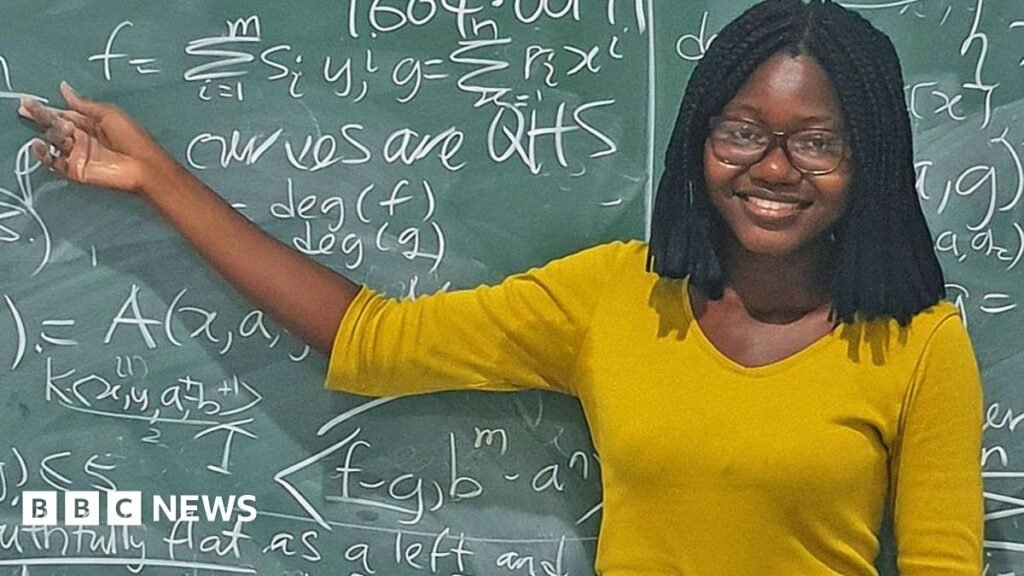But her scores, although high, were not enough – and that is why she was accepted for mathematics and economics.
“It was a blessing in disguise,” says Dr. Tabiri. “Numbers and puzzles fascinated me, but I never thought a career in math was for me.”
In 2015, Dr. Tabiri was awarded a PhD scholarship at the University of Glasgow in Scotland. It was hard work, she says, and that’s where she had her big moment.
She went to see the movie “Hidden Figures” about black American female mathematicians who worked for the American space agency NASA in the 1950s, during the era of segregation in the United States.
“It was amazing to see the story of these black women being told on the world stage,” she recalls. “I got goosebumps watching it.”
She was particularly inspired by Katherine Johnson, whose extraordinary mathematical skills and calculations were critical to the success of US spaceflight.
“Katherine Johnson worked so hard – and for a long time her work was hidden. She made me realize that I just had to keep going.
“If your work is not even recognized now, it will be recognized sometime in the future. It was a real turning point for me.”
Ghana achieved a historic milestone in 2024 when Dr. Gloria Botchway became the first woman to graduate from the University of Ghana with a PhD in Mathematics.
It was a journey full of hardships – including selling water and yams on the side of the road at the age of six.
Through her non-profit organization FemAfricMaths, Dr. Tabiri tries to support other African girls and women from less privileged backgrounds to fulfill their dreams in mathematics.
Together with other volunteers, she conducts classes with the youngest high school students face-to-face and online.
She also posts social media interviews with leading female mathematicians from around the world.
Dr. Tabiri is also very passionate about the potential of quantum science and technology, for which mathematics is very important.
She is proud that Ghana, with the support of Mexico, has led proposals to declare 2025 the UN International Year of Quantum Science and Technology – the 100th anniversary of the discovery of modern quantum mechanics.
Quantum mechanics arose out of research to find out how tiny particles – the most fundamental bits of matter, energy and light – interact with each other to create the world.
This led to the development of the Internet, solar panels and global navigation satellite systems.
Researchers and major technology companies from around the world – including China, the US, the UK, Australia and South Africa – are now racing to develop quantum technologies, including quantum computers and ultra-precise measuring and sensing devices.
The hope is that complex problems will be solved at lightning speed – and there will be huge innovations in fields such as medicine, environmental sciences, food production and cyber security.
“There’s a lot of talk now – the pros and cons – the jobs that will be created,” Dr Tabiri says.

